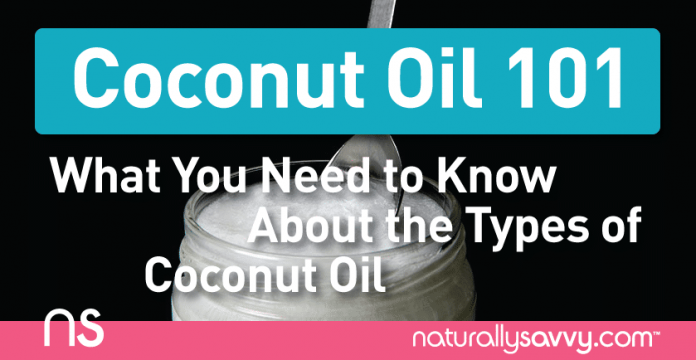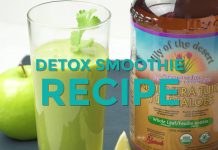
You could say coconut oil is experiencing a renaissance. Once shunned for its saturated fat ala the '80s fat-free craze, we've learned a thing or two about the importance of healthy fat in the diet. And in particular, we know there are benefits to coconut oil. But between refined, unrefined, extra virgin and virgin, and expeller pressed or cold pressed, it's hard to tell what's the best coconut oil option for our health. Here are a few tips.
Read more: Why Coconut Oil is Good for You
Refined or Unrefined?
Refined anything sounds like a bad idea. We avoid refined sugars, flours, grains…why would oil be any different? If you're using coconut oil to cook with (which you should because it can tolerate extremely high heats better than pretty much any other oil), but don't want that coconutty flavor, refined is the way to go. It's a process that removes some of the flavor and coconut aroma, making it a more neutral oil. You'll sometimes see refined coconut oil sold as "regular." Avoid oils labeled as "RBD" (refined, bleached and deodorized), which use chemicals in the process. There are chemical-free refining processes which maintain the integrity of the oil.
Unrefined is just that-as close to coming straight out of the coconut as possible. That means more flavor and fragrance. It's great in desserts, smoothies and even spread on toast, where you want that sweet coconut flavor.
Expeller Pressed or Cold Pressed?
There are a number of ways oil is made. A popular method is expeller pressing, which incorporates pressure and weight to extract the oils. It's an ancient practice, one that works. It's similar to cold pressing where the oil may also be pressed out of the coconut meat. (Some cold pressing uses centrifugal spinning methods.) What you don't want is anything that uses high heat or chemicals to extract the oil. This can erode its quality and flavor. Cold pressed and expeller pressed aren't regulated terms so look for brands with quality assurance and information on websites that explain pressing procedures.
Extra-Virgin or Virgin?
You may be most familiar with this term thanks to olive oil. But unlike olive oil, when it comes to coconut oil, extra-virgin and virgin pretty much mean the same thing, which is essentially cold-pressing without the use of high heat or chemicals. But, again, it's not a regulated designation. Your best bet? Your nose. If the oil smells coconutty, sweet and fresh, then it's probably been properly pressed.Always look for coconut oil that comes in glass. Oils are extremely absorbent and can pick up chemicals from plastic packaging.
Read more: 27 Uses for Coconut Oil
[Editor's Note: Naturally Savvy recommends the high-quality coconut oil from our partners Barlean's and Ellyndale.]










